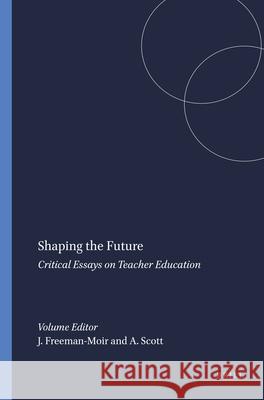Shaping the Future : Critical Essays on Teacher Education » książka
Shaping the Future : Critical Essays on Teacher Education
ISBN-13: 9789087901578 / Angielski / Miękka / 2007 / 268 str.
World wide the production of teachers has become a sharp political issue during the early years of the twenty first century. Current systems for ensuring a supply of capable and knowledgeable teachers have come sustained under attack from politicians, economists, parents organisations and social critics alike. There is less agreement now about teacher education than in any time over the pass fifty years.Much of the debate in the public and political arenas has been driven by narrow and expedient consideration and too much of it demonstrates a poor grasp of the deep and complex issues which teacher education in a democracy must confront. At the same time there has been a serious educational debate which has focused on what a well trained teacher ought to be able to do, and what methods of training and education can produce competent teachers. The chapters of this book address these issues in a critical way asking what should the objectives of teacher education be. The authors demonstrate the international reach of the debate over teacher education and they ground their discussions within the national contexts of their own experience. All the authors share the view that teacher education involves much more than acquiring a set of skills and techniques. Important as these are the well trained teacher needs, for example, to have an understanding of the contexts of teaching, of the reasons why we teach, of the role of schools as institutions within political environments, as well as a coherent perspective on curriculum and the relevant bodies of theory which give overall point to what is being done. What teacher education entails will probably never be beyond contestation, at least not so long as it takes place within capitalist democracies. These democracies, with their tensions running between liberal ideals and economic imperative, push and pull teacher education in contradictory directions. At present educational ideals seems too quickly and too dogmatically to be traded for immediate fiscal policy. The authors of these chapters articulate the reasons why such short-term thinking will be detrimental to any approach to teacher education which commits itself to producing well rounded and comprehensively professional teachers.











